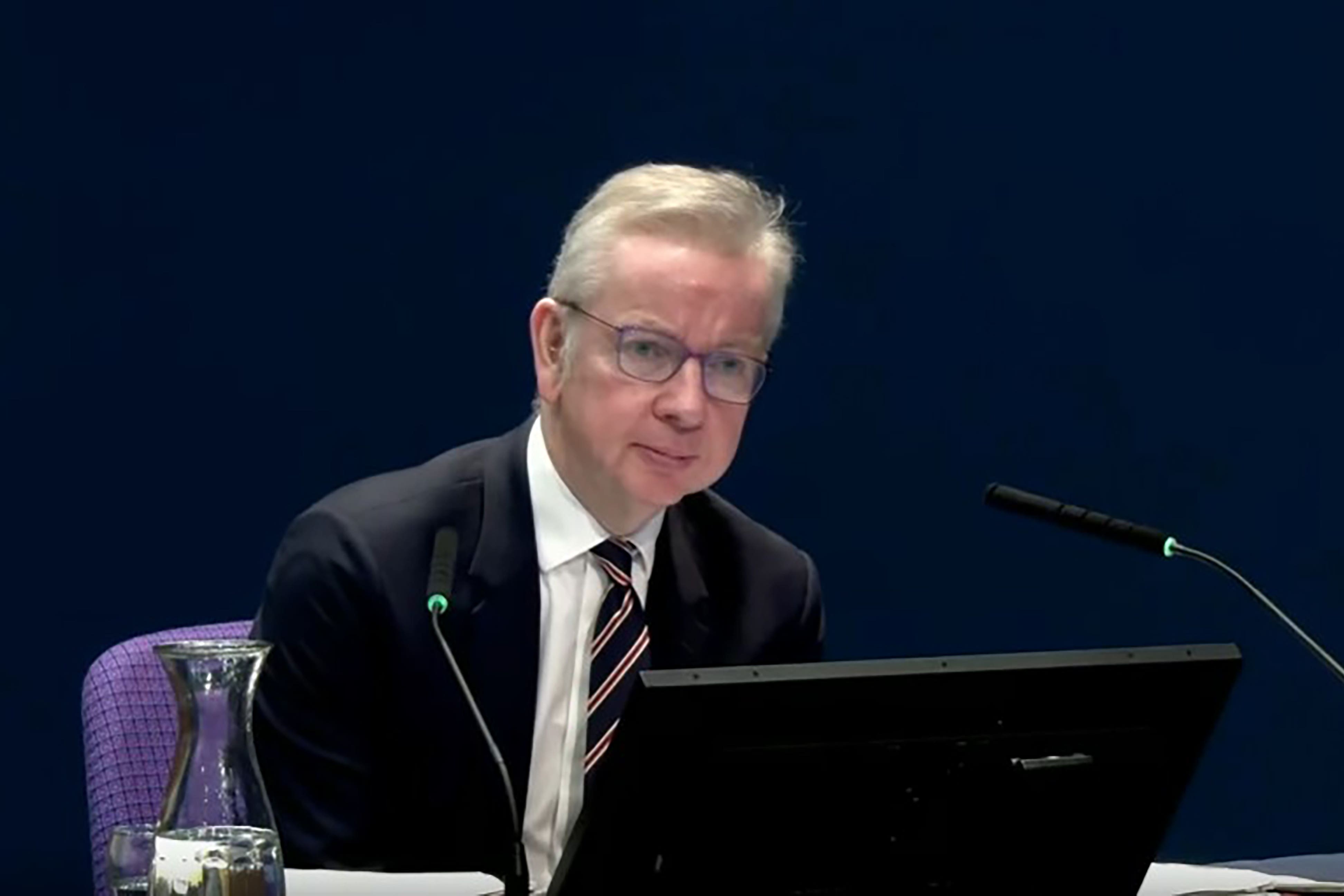Covid inquiry: There was political desire for differentiation in Scotland – Gove
The Levelling Up Secretary gave evidence at the UK Covid-19 inquiry in Edinburgh.

Michael Gove has told the UK Covid-19 inquiry some of the language used by Scottish Government officials led him to believe there was a “desire for differentiation” from the UK Government during the pandemic “for the sake of advancing a political agenda”.
Giving evidence to the inquiry as it sits in Edinburgh, Mr Gove referenced evidence the inquiry heard last week of WhatsApp messages between Scotland’s former first minister, Nicola Sturgeon, and her then chief of staff, Liz Lloyd, about starting “a good old-fashioned rammy” with the UK Government so she could “think about something other than sick people”.
Levelling Up Secretary Mr Gove told the inquiry that the “temptation” at “certain points” to seek political advantage is “clearly there” with the Scottish Government, given the “cause to which they have devoted their lives (independence)”.
He said: “Some of the language used, the desire to have ‘a good old-fashioned rammy with the UK Government’, and some of the other language used, which I shan’t repeat now, does lead me to believe that at that point, there was a desire to pursue differentiation for the sake of advancing a political agenda.
“I want to take as balanced as an approach that I can, paying tribute to her (Nicola Sturgeon’s) energy and hard work in seeking to do what was right while at the same time acknowledging the SNP is a political movement with a clear goal and its members and its leadership have seldom missed an opportunity in other times to seek differentiation to advance their cause.”
Counsel to the inquiry, Jamie Dawson KC, asked Mr Gove if there was a “completely dysfunctional” relationship between the UK and Scottish Governments “at times”.
Mr Gove disagreed and said: “No, I don’t believe they are politically motivated in everything they do. I think, I have great respect for the professionalism with which many Scottish Government ministers conducted themselves. I do believe their overwhelming motivation was to protect the people of Scotland from a virus.
“However, there are and were occasions when the Scottish Government was thinking politically, as we can see, and, of course, it is the case the SNP has a political mission to achieve Scotland’s independence, i.e. destroy the United Kingdom and it would be naive not to be aware that highly skilled politicians, including those at the top of the Scottish Government, might well see what they perceive to be political advantage at certain points.
“But, I think, it’s important to note that while that did happen at certain points, the day-to-day management of the pandemic preoccupied them as it did other ministers.”
Mr Gove served as a Cabinet Office minister during the pandemic, with a focus on intergovernmental relations and told the inquiry the relationship between the UK Government and the devolved administrations was “for the most part constructive” when dealing with the day-to-day management of the pandemic.
He said “we can learn from how we responded to this virus to consider how the devolution settlement can be evolved in the future” but the current balance of the constitutional settlement is “broadly right”.
The inquiry, chaired by Baroness Hallett, continues.
Bookmark popover
Removed from bookmarks